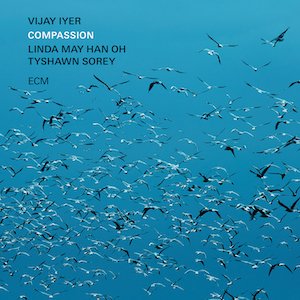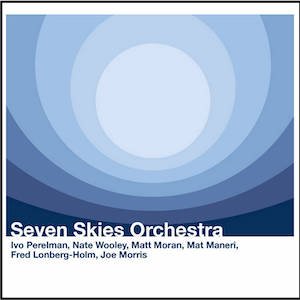Label: Out of Your Head Records, 2024
Personnel - Michael Attias: alto saxophone; Santiago Leibson: piano, keyboards; Matt Pavolka: bass; Mark Ferber: drums + guest - Christopher Hoffmann: cello (#4).
Creative jazz enthusiasts will rejoice at the return of alto saxophonist Michael Attias to the recording sessions, particularly upon experiencing his latest offering, Quartet Music Vol. I: LuMiSong. This date features him alongside pianist Santiago Leibson, bassist Matt Pavolka and drummer Mark Ferber, a quartet of talents whose collective synergy yields remarkable dividends when given creative freedom.
Unfurling in a 21-bar form, “#63 (Settled)” sets up the dynamics with a patterned propulsive motion steeped in odd meter and striking juxtapositions. A stringent theme takes us to Attias’ intricate soloing language, a sardonic tone, and an uncompromising commitment to freedom. The rhythm section, buoyed by Leibson’s Wurlitzer groove, demonstrates a matured focus on concept and mood, weaving a knife-edged lushness in the musical tapestry that serves as a fertile ground for improvisation.
The energy is unbounded and escalates further in the through-composed “Mister Softee is a Front”, inspired by Attias’ new neighborhood and informed by an advanced post-bop creativity that leans toward the avant-garde. The piece unfolds with a saxophone riff working together with fluid percussive streams, irregular bass adherence, and responsive piano, culminating in a brightly hued harmonic current in 5/4 time, inviting exploration.
The multi-sectional composition “NME” unfolds with intrigue, transitioning from a pensive sentiment to an expansive 15-beat cycle adorned with cluster chords and dubbed saxophone polyphony. The album ceases with “Hexway Liner”, whose inquisitive piano intro gives rise to a theme marked by cryptic intervallic range and smart chromaticism. Guest cellist Christopher Hoffmann contributes ideas in post-production, working around the periphery of the tune.
As an out-of-the-box sonic architect, Attias conceives music that expands our horizons and plays with our musical preconceptions. Requiring open-mindedness to be deeply entrenched, this is an utter and complete joy to listen to.
Favorite Tracks:
01 - #63 (Settled) ► 02 - Mister Softee is a Front








































